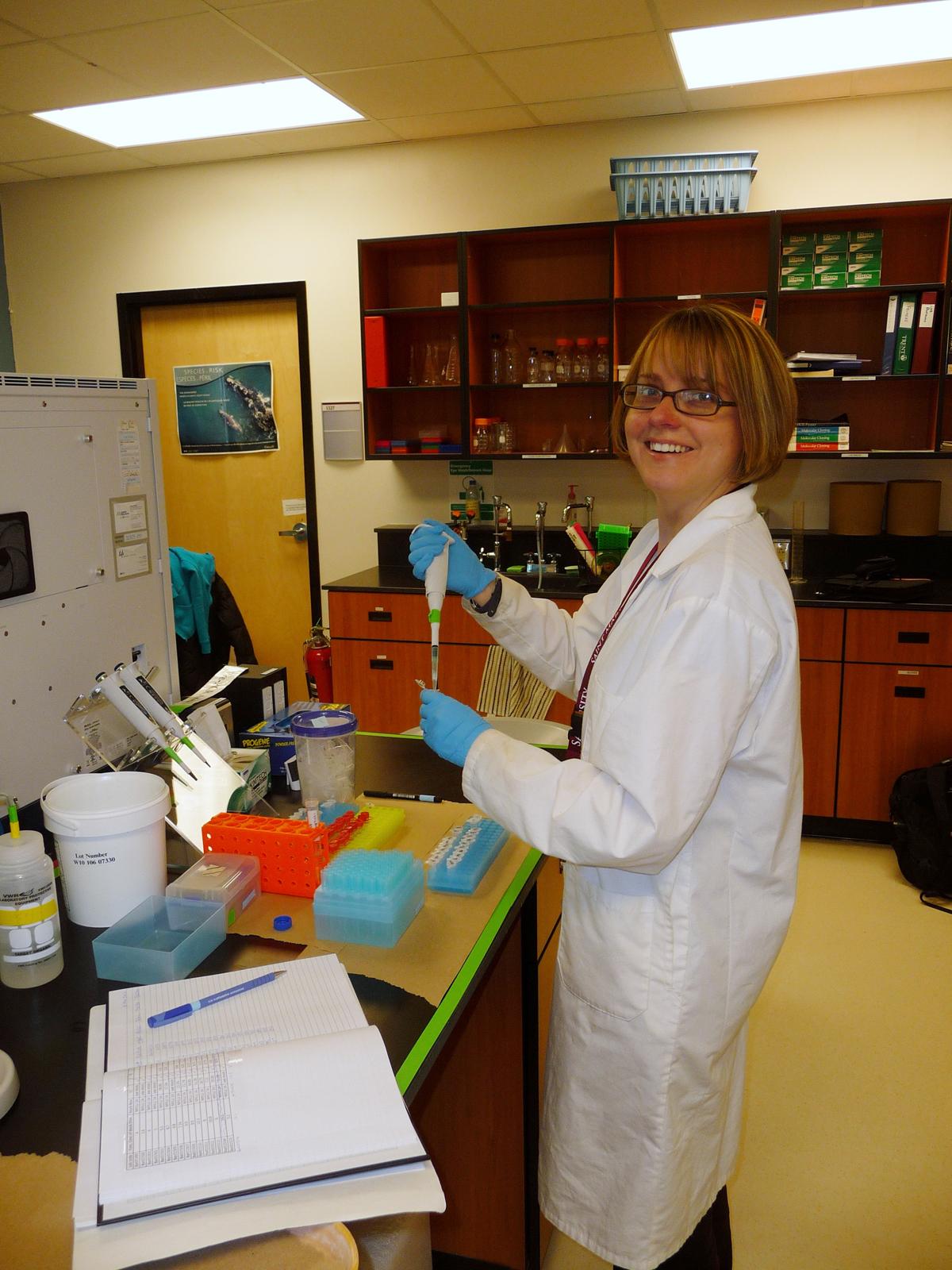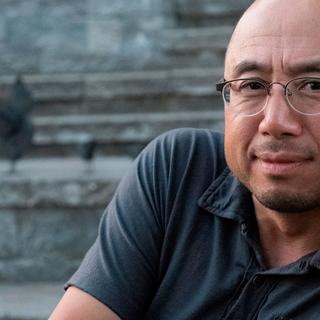FOR IMMEDIATE RELEASE: WEDNESDAY, JAN. 23, 2013
In high school, Lynne Burns never thought about pursuing a career in science. Today, this Vancouver Island University graduate is one of Canada’s leading experts in bat ecology and conservation.
Burns will receive an Alumni Horizon Award at VIU’s convocation at the Port Theatre in Nanaimo on Tuesday, Jan. 29.
The award recognizes the outstanding achievements of VIU alumni within 10 years of receiving a credential from VIU.
VIU Biology professor Dr. Tim Goater nominated Burns for the award “in recognition of her extraordinary success in her studies dealing with these highly specialized mammals, and as a marvellous ambassador of VIU over the years.”
Originally from Nanoose Bay, Burns graduated from Ballenas Secondary in Parksville in 1997.
“Rather quickly after graduating, I realized that biology courses in high school were what I really enjoyed,” she says. “Adult Basic Education courses at VIU’s Parksville-Qualicum Centre allowed me to pick up the few science credits I needed quickly (physics and chemistry) to enter the biology program at VIU the following year.”
Burns completed a Bachelor of Science degree (major in biology) at VIU in 2004. Participating in VIU’s tropical field school to Belize, Central America in 2003 was “a pivotal moment” in her education and future career.
During the field study, Burns collected data for a fourth-year Biology 491 undergraduate research project which gave her the unique opportunity to conduct research in the tropics on bats.
Burns investigated bat diversity and temporal variation in bat activity in Belize under the supervision of VIU’s biology technician Wendy Simms.
“I spent numerous hours on the banks of the Sibun River in Belize recording bat calls with Lynne for her project,” recalls Simms. “I quickly realized she has an incredible desire to learn and a genuine passion for bat ecology and conservation. It has been exciting to watch Lynne follow this passion and become one of the leading experts in her field. Lynne’s knowledge and expertise is especially important right now because of the emergent disease known as white-nose syndrome, which is killing millions of bats across North America at an alarming rate.”
Burns’ pursuit of wildlife research, particularly on bats, continued when in 2007 she completed a Master of Science in Applied Science at Saint Mary’s University in Halifax. Her thesis research investigated the effects of forest fragmentation on a forest-dependent bat species on Prince Edward Island.
Following her graduate degree, Burns worked as a Wildlife Biologist in Prince George, working on a variety of projects including bird radar and point count surveys, acoustic bat surveys and species-at-risk projects.
Burns is currently a PhD candidate at Dalhousie University under the supervision of Dr. Hugh Broders at Saint Mary’s University in Halifax, NS. Her research seeks to explore some of the many unknowns surrounding the autumn bat mating and migration period (called swarming).
The goal is to understand the movement dynamics and population structure of typical resident hibernating bats. Burns is using a combination of ecological research tools to explore the movements of little brown and northern long-eared bats during the autumn swarming season at sites in Maritime Canada.
Burns says the early exposure to hands-on research at VIU shaped her academic journey.
“When I entered graduate school, I had already conducted an independent research project at VIU and so I had an understanding of the process of answering scientific questions from start to finish,” she says.
“Conducting your own project fosters the independence and critical thinking that one needs in pursuing science as a career. It sets up students perfectly for graduate school or to enter the scientific work force.
“In my mind, VIU continues to stand out as an exceptional school to earn an undergraduate science degree in biology,” Burns adds. “I have continued to refer back to the fundamental principles I learned at VIU while pursuing two graduate degrees.”
Burns appreciated VIU’s small class sizes and accessibility of faculty. “These are strengths of VIU,” she says. “The interactions VIU students have with their instructors is quite unique because there is a strong focus on teaching.”
-30-
ABOUT VIU: Vancouver Island University is Canada’s west coast university. Known as a centre of excellence for teaching, learning and applied research, VIU offers a diverse range of certificate, diploma and undergraduate and master degree programs to more than 18,000 students on campuses in Nanaimo, Powell River and Cowichan, and at the Parksville-Qualicum Centre. For more information visit www.viu.ca
Media Contact
Janina Stajic, Manager, Vancouver Island University
P: 250.740.6288 E: Communications@viu.ca Twitter: @VIUNews





